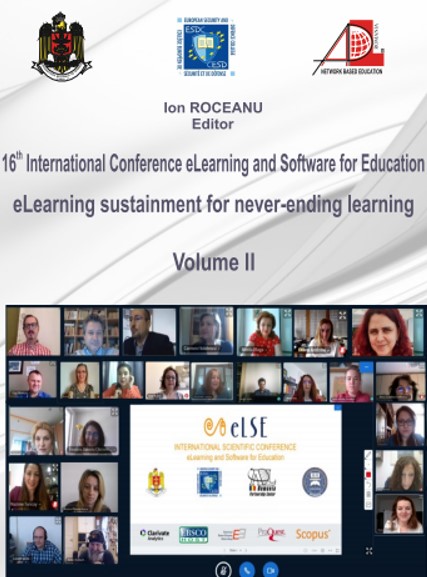THEORETICAL AND PRACTICAL ASPECTS OF ELABORATION OF PRINCIPLES, FUNCTIONS AND TOOLS FOR ASSESSING QUALITY OF UNIVERSITY EDUCATION BY MEANS OF ICT
THEORETICAL AND PRACTICAL ASPECTS OF ELABORATION OF PRINCIPLES, FUNCTIONS AND TOOLS FOR ASSESSING QUALITY OF UNIVERSITY EDUCATION BY MEANS OF ICT
Author(s): Angelina I. Dubskikh, Anna V. Butova, Yulia SavinovaSubject(s): Foreign languages learning, Higher Education , ICT Information and Communications Technologies, Distance learning / e-learning, Pedagogy
Published by: Carol I National Defence University Publishing House
Keywords: a professional activity; teaching; professionally-oriented foreign languages; personoriented approach; ICT; an electronic course; motivation; e-learning.;
Summary/Abstract: Issues of students’ knowledge assessment remain the most debatable ones. The article focuses on theoretical and practical aspects of elaboration of principles, functions and tools of assessing students’ learning activities with the use of ICT. The article describes principles, functions, tools and criteria of assessing students of higher educational institutions, their advantages and drawbacks, as well as theoretical and practical application of ICT in the process of education at different levels. Modernization of the contemporary higher school requires a revision of assessment as a compulsory phenomenon in the educational process. The authors describe the system of students’ knowledge assessment with the use of ICT from different angles, which allows to identify priority ways for improving control at different stages of education. The educational process efficiency, as well as the level of future specialist training depends on the correctly organized systematic control. Special attention is paid to the new forms of control with the use of Information and Communication Technologies, which are actively used as learning tools. The article also focuses on the non-traditional forms of control, which can be used both for independent and class work. Monitoring of students’ quality of knowledge, skills and abilities is effective only in case its functions are defined correctly. Along with its specific controlling function, monitoring must perform an educational function as well. Contents, tools and methods of control and analysis must have the educational function, synthesize the acquired skills and information, ensure their consolidation and repetition. The authors conclude that only due to the combined application of various tools and criteria of assessment, the quality of education in higher professional school can be improved.
Journal: Conference proceedings of »eLearning and Software for Education« (eLSE)
- Issue Year: 16/2020
- Issue No: 02
- Page Range: 362-368
- Page Count: 7
- Language: English

